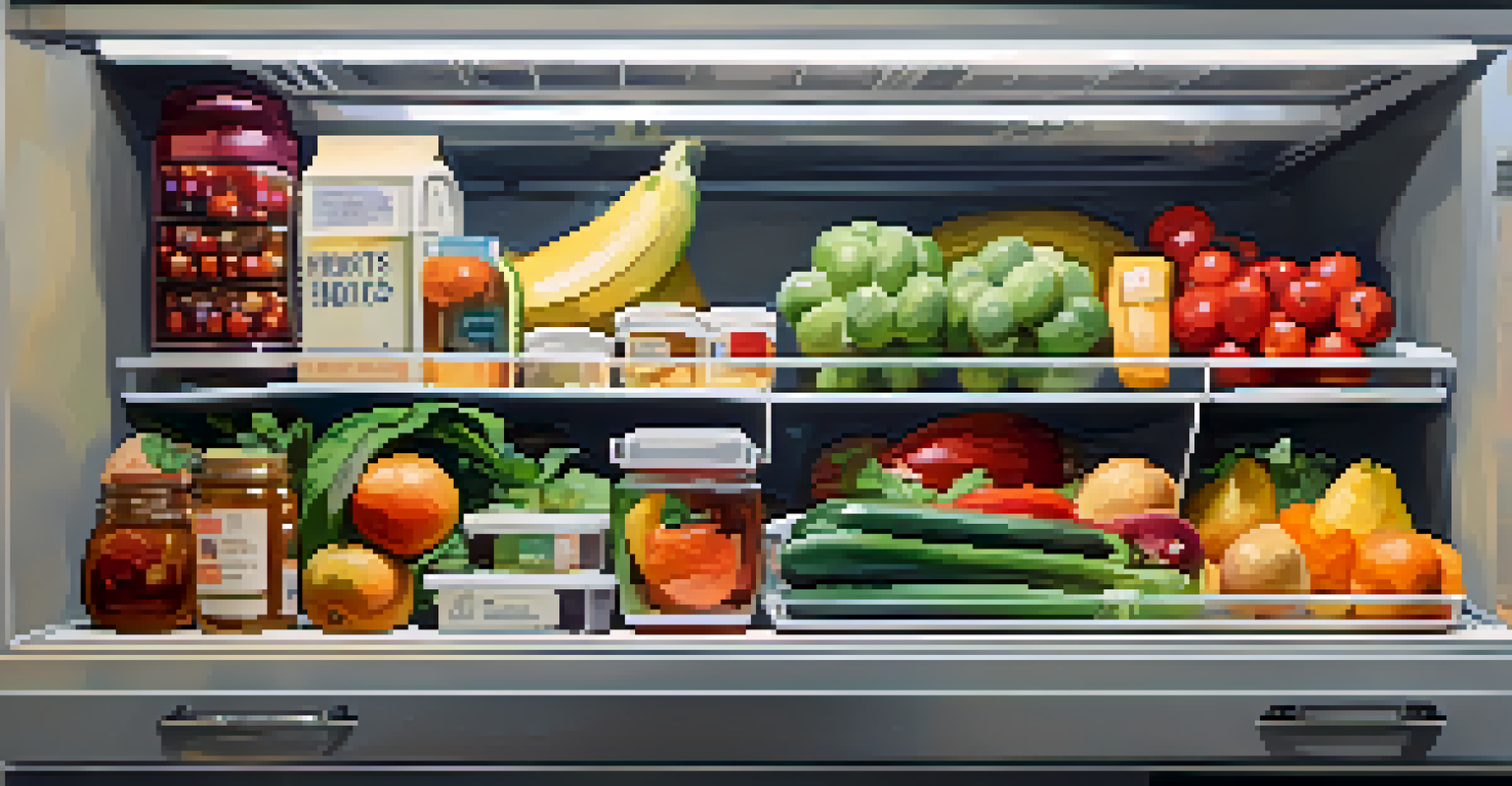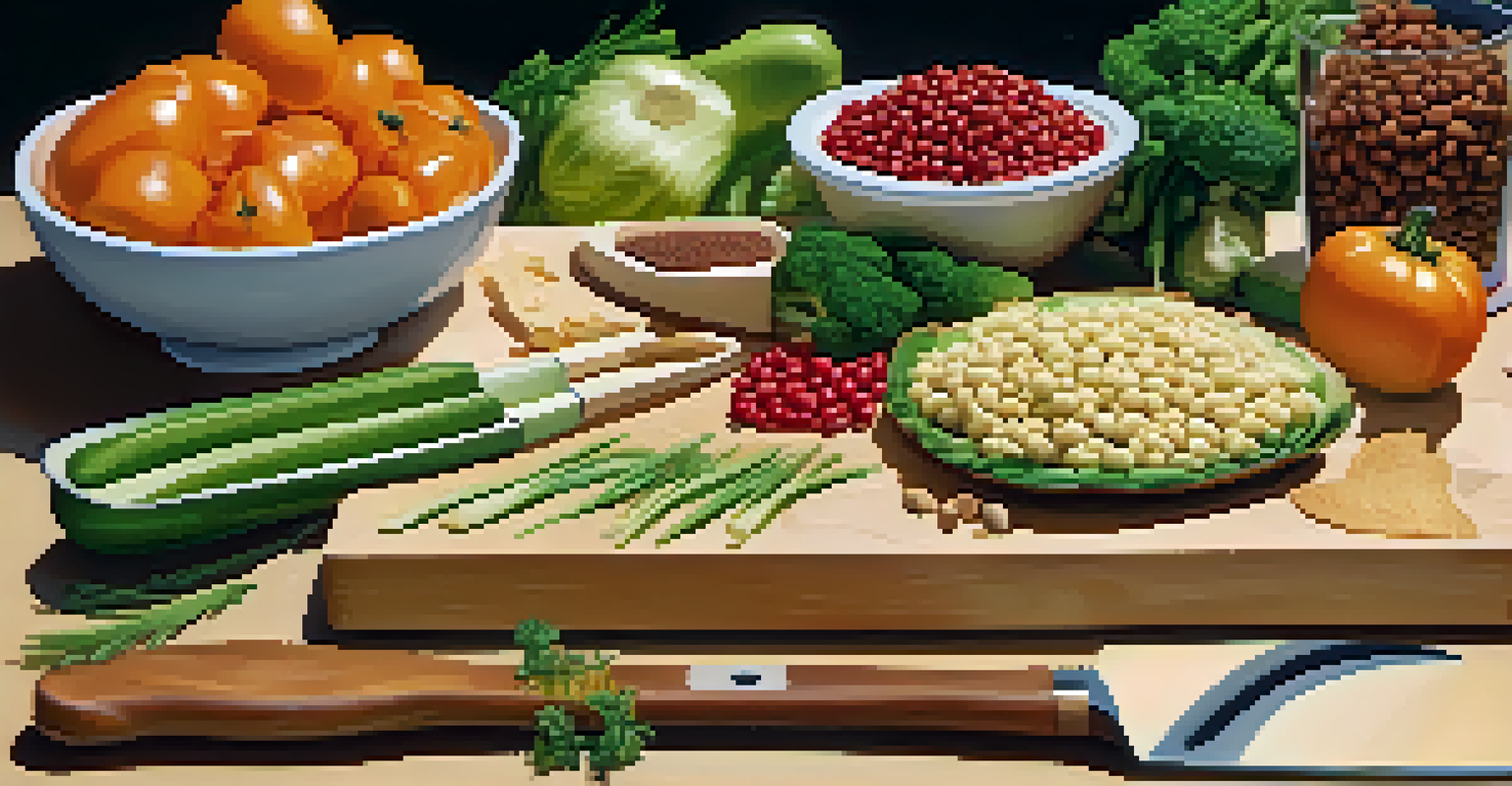Avoiding Foodborne Illness: Vegan Food Safety Tips

Understanding Foodborne Illness: The Basics
Foodborne illness is an infection or irritation of the gastrointestinal tract caused by contaminated food. Even though it’s often associated with meat, vegans can also be at risk if proper safety measures aren’t taken.
Food safety is not a complicated thing. It’s about keeping food clean and safe to eat.
Common symptoms include nausea, vomiting, stomach cramps, and diarrhea. These can occur from consuming contaminated fruits, vegetables, grains, or plant-based proteins.
Understanding how foodborne pathogens can affect your health is crucial for anyone, especially those who rely on fresh and whole foods in their diets.
Wash Your Hands: A Simple Yet Effective Step
One of the simplest yet most effective ways to prevent foodborne illness is by washing your hands. Before preparing any food, it’s essential to scrub your hands with soap and water for at least 20 seconds.

This practice helps eliminate any bacteria or viruses that may be on your hands, which can easily transfer to your food. Don’t forget to wash after handling raw produce or touching any surfaces.
Prevent Illness by Washing Hands
Washing your hands thoroughly before handling food significantly reduces the risk of transferring harmful bacteria to your meals.
By making hand washing a habit, you significantly reduce the risk of contaminating your meals, ensuring that your vegan dishes are as safe as they are delicious.
Keep Your Produce Clean: Rinse and Brush
Fruits and vegetables can harbor dirt, bacteria, and pesticides, making it crucial to wash them thoroughly before consumption. Rinsing them under running water is a must, but some may benefit from a gentle scrub.
The food you eat can be either the safest and most powerful medicine or the slowest form of poison.
For firmer produce like potatoes or carrots, using a brush can help remove any stubborn residues. This practice not only ensures cleanliness but also enhances the overall taste of your meals.
Remember, a good rinse can be the difference between a delightful salad and a bout of foodborne illness.
Proper Food Storage: Keep It Fresh and Safe
Storing your vegan ingredients properly is key to avoiding spoilage and contamination. This means keeping perishables, like fruits and vegetables, in the refrigerator and using airtight containers for leftovers.
Additionally, pay attention to expiration dates and consume items in a timely manner. Freezing can be a great option for extending the life of your plant-based ingredients.
Proper Storage Keeps Food Safe
Storing fruits, vegetables, and leftovers correctly helps prevent spoilage and contamination, ensuring your ingredients remain safe to eat.
A well-organized fridge helps you keep track of what you have, reducing waste and the risk of eating spoiled foods.
Separate and Conquer: Avoid Cross-Contamination
Cross-contamination occurs when bacteria from one food item transfer to another, and it can happen easily in the kitchen. To prevent this, use separate cutting boards and utensils for different types of food.
For instance, designate one cutting board for raw vegetables and another for cooked dishes. This will help keep your meals safe from any harmful pathogens.
Separating your food preparation processes ensures that your vegan meals remain healthy and safe for everyone to enjoy.
Cooking: The Heat is Your Friend
While many vegan foods can be enjoyed raw, cooking is a powerful way to eliminate harmful bacteria. Be sure to cook legumes, grains, and other ingredients properly to safe temperatures.
Using a food thermometer can help ensure that your dishes reach the appropriate heat levels. For example, cooked beans should reach at least 165°F to be considered safe.
Cooking Eliminates Harmful Bacteria
Cooking plant-based foods to safe temperatures effectively kills harmful bacteria, making your meals safer and more enjoyable.
Embracing cooking not only enhances flavors but also provides an added layer of safety to your meals.
Mind the Labels: Know What You Consume
Reading food labels is essential for any health-conscious eater, especially vegans. Labels provide vital information about ingredients, allergens, and proper storage instructions.
Look for signs of contamination, such as recalls or safety warnings, which can often be found on company websites or food safety apps. This awareness helps you make informed choices.

By paying attention to what you’re purchasing, you can better protect yourself and your loved ones from foodborne illnesses.
Stay Informed: Resources for Vegan Food Safety
Staying informed about food safety is crucial for all cooks, especially those following a vegan lifestyle. Numerous resources are available, including government websites, cooking blogs, and food safety apps.
Consider joining vegan community forums or local groups where members share tips and advice. These platforms can be invaluable for discussing the latest trends and safety practices.
By connecting with others, you not only enhance your own knowledge but also contribute to a culture of safety and health in the vegan community.